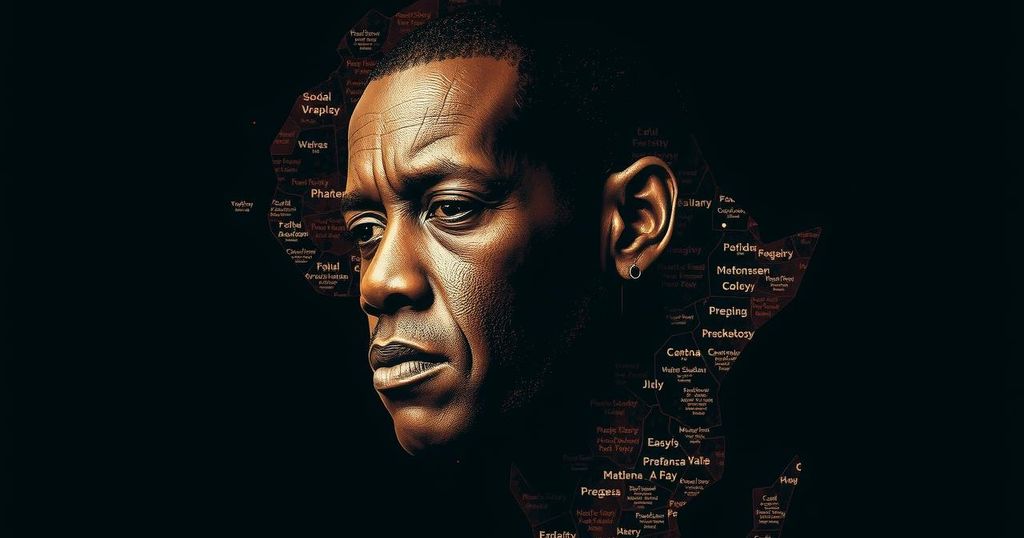Donald Trump’s Prospective Return: Implications for Africa’s Political Landscape
The anticipated return of US President-elect Donald Trump signals both opportunities and challenges for Africa. His transactional political style and focus on direct dealings might override the previous administrations’ commitment to multilateral diplomacy and democratic norms. This shift poses potential risks, especially in ongoing conflicts like those in Sudan and Ethiopia, raising concerns over Africa’s future strategies for peace and cooperation.
US President-elect Donald Trump’s return to the White House heralds both opportunities and challenges for Africa, as his approach to foreign policy starkly contrasts with his predecessors. Trump is expected to continue his transactional political style, characterized by direct dealings rather than the multilateral diplomacy favored by previous administrations. The legacy of the early Obama years, with constructive engagement through the African Union (AU) and UN efforts to enhance peacekeeping in Africa, appears to be fading. The previous attempts to construct an African peace and security framework saw a decline during Trump’s first term, leading to minimal new peacekeeping missions and a withdrawal from active engagement in pivotal disputes like the Nile waters crisis between Egypt and Ethiopia. Under the Trump administration, there is a notable shift away from the ‘liberal peace’ ideology, favoring instead the so-called “illiberal peace,” where leaders engage in direct deals that prioritize results over democratic norms. Twilight over Sudan, embroiled in both conflict and famine, exemplifies the uncertain dynamism of the region under Trump’s potential second term. Following a non-traditional method of negotiation that disregards established peace-building principles, Trump might catalyze some arrangements, though these would not necessarily yield democratic reform or end hostilities. The strategic interests of various Middle Eastern powers further complicate this scenario, as alliances formed on the basis of arms and finance are expected to continue influencing the contours of peace and stability within Africa. While the Biden administration struggled to establish principled multilateralism, reflecting a continuity of the challenges faced by Africa, the upcoming engagements between Trump and African leaders could lead to further transactional politics. This promises a landscape where autocratic governance and military engagements take precedence over cooperative frameworks rooted in human rights and democracy. Leaders attending the upcoming AU meeting in February will face the pressing need to steer discussions toward their normative principles, even as Trump’s presence looms large on the horizon. Ultimately, the implications of Trump’s potential return will reverberate through Africa’s diplomatic and security landscapes, raising urgent concerns over the pathways to lasting peace and development in the continent.
The political dynamics in Africa are heavily influenced by external powers and their strategic interests. Over the years, the approach from the United States has shifted, notably under different administrations, from a focus on multilateral engagements promoting democratic values and human rights to a more transactional and power-centric view under Trump. The previous objectives to build a sustainable peace through the African Union and additional UN collaboration saw a decline, particularly evident in the cessation of new peacekeeping missions and support in resolving long-standing issues like the disputes over the Nile waters. Understanding these shifts is crucial for analyzing the current and future geopolitical landscape in Africa, especially with Trump’s expected return.
In summary, Donald Trump’s impending presidency presents a complex array of prospects and risks for Africa. His transactional approach to politics may lead to short-term agreements that do not favor the continent’s democratic aspirations or long-term peace strategies. As African leaders prepare for their upcoming AU summit, the emphasis must be placed on reestablishing norm-based multilateral cooperation amid the looming realities of illiberal governance principles gaining ground. The outcomes will have profound implications for peace and security in the region moving forward.
Original Source: www.bbc.com




Post Comment